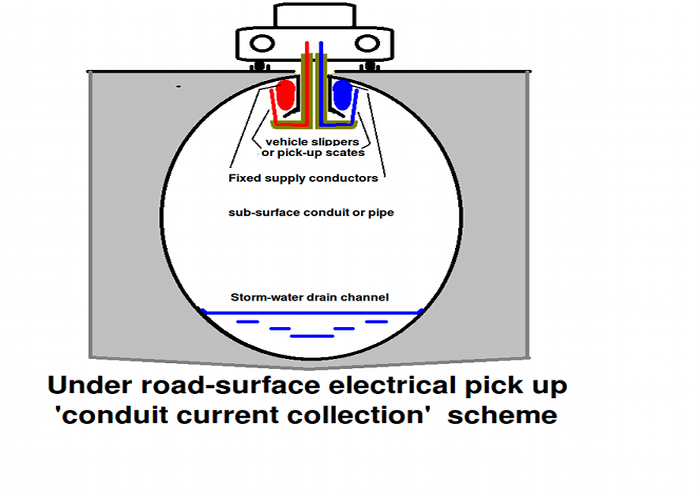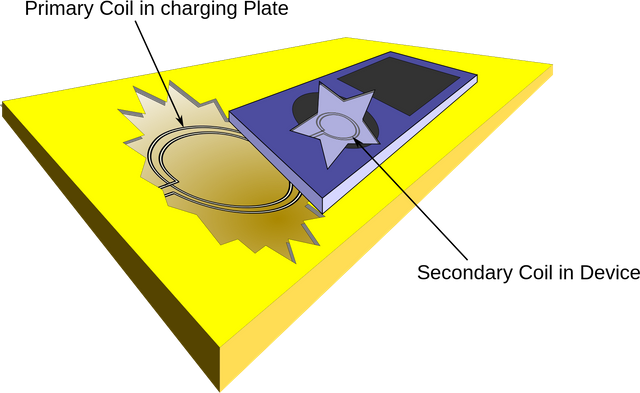Sustainable Energy: Electrified Road That Charges Electric Vehicles As They Are Driven Along (Research-based)
Unarguably, how to make fossil-free road transportation a reality has been the concern of the leaders all over the world. The quest for solution has led to plethora of multi-national meetings by world leaders who are hellbent on taking every necessary step to avert the inevitable future doom if nothing is done now to arrest the situation by reducing the rate at which we consume fossils.
[A fully battery-electric Optare Versa midibus. Source: Wikimedia commons. Author: Quackdave. CC BY-SA 4.0 licensed]
As a result, a lot of nations have put mechanisms (including policy measures) in place to ensure that their dependence on fossil-fuel powered machines are brought down to barest minimum within the nearest possible future. For instance, Sweden vigorously pursuing its policy to achieve a 70 percent reduction in greenhouse gas emissions by 2030 [1]. The scramble to mitigate the rate of emissions of greenhouse gases has led to production of electric vehicles.
However, there are observable hurdles which are militating against widespread use or adoption of electric vehicles. Not only that they come with expensive bulky batteries, you have to stop intermittently to have them recharged at special recharging stations, throwing up the question: what if the stored charge gets exhausted at a spot where there is no recharging station? So even though production of electric vehicles provided solution to problems associated with using fossil-fuel dependent vehicles, it also created another problems in terms of having to stop intermittently to recharge them and the expensive nature of the batteries.
To find lasting solution to this, start-ups in many countries are being supported by their governments to explore a number of alternatives. Among the alternatives being explored, electrified roads using either inductive or conductive technologies to power or recharge batteries of electric vehicles as they are driven along the streets, have proven to be the best choice.
Instead of having to regularly plug in electric vehicles, future roadways could power cars while they're in motion, so you never have to stop for a recharge again. Source
Countries that have made tremendous progress in this new technology include (but not limited to) Sweden, France, South Korea, Italy, etc.

[A wirelessly powered modern vehicle. Source: Wikimedia commons. Author: Grandmaket. CC BY-SA 4.0 licensed]
Technologies of electrified road (how is it possible that a road charges vehicles as they are driven along?)
How is it possible that an asphalted road is able to charge or power electric vehicles on motion? Isn't this crazily impossible to believe guys. Well, like I have always said, "The word 'impossibility' is antithetical to field of Science." That's worthy of note.
That being said; depending on countries or companies, there are two major technologies being adopted to achieve wireless charging electric roads. Whereas technology A may appeal to one company, another company may prefer technology B. In any case, the two technologies that can be used are:
- Conductive technology, or
- Inductive technology.
Conductive technology
Conductive technology makes use of a conductor to ensure contact between two electronic devices to achieve energy transfer. In other words, it requires a physical connection between the electronic device's battery and the power supply [2]. The need for a metal-to-metal connection between the charger and the device requiring charging is one of the main drawbacks of this technology [2].
Conductive charging technology in real life use
Conductive technology is the choice charging method being adopted by eRoadArlanda who is the company overseeing electric road project (whereby electricity is supplied via conductors embedded in the road [1] in Sweden.
Here...the vehicle is connected to an electrified rail and, as long as the vehicle is above the rail, a movable arm transfers power from the rail to the vehicle’s battery. Source

[Skeletal drawing of conductive technology system. Source: Wikipedia commons. Author: Timpo. CC BY-SA 3.0 licensed]
"There is no electricity on the surface. There are two tracks, just like an outlet in the wall. Five or 6 centimeters [2 or 2.4 inches] down is where the electricity is,” eRoadArlanda chief executive Hans Säll told The Guardian. “But if you flood the road with salt water then we have found that the electricity level at the surface is just one volt. You could walk on it barefoot.” Source
Inductive technology
Unlike conductive charging technology, inductive charging technology makes use of electromagnetic field to transfer energy between two objects via electromagnetic induction. This is the type of technology in use in most charging stations. Here, energy is passed via what's known as an inductive coupling to an electrical device that uses it to charge batteries or run the device [3]. This may introduce a potential for energy loss as the distance created between the device and the charging board means energy transfer is less efficient [2].
Inductive technology in real life use
A good example of a real life scenario where inductive charging technology is being used is the one being employed by Electroad in Israel. Electroad is the company overseeing electric road construction in Isreal.
Here...the buses are charged and propelled by power from the interaction of two electromagnetic fields. Inverters installed along the side of the road provide power to plates of copper embedded in the road. Similar copper plates are installed on the bus’s underside. As the vehicle passes over the charged roadway, the two fields interact and generate power. Source

[Skeletal drawing of inductive charging system. Source: Wikimedia commons. Author: Egmason. CC BY-SA 3.0 licensed]
Conclusion
The advantages of electrifying roads are very obvious. Not only that existing infrastructure can have its energy consumption and carbon emissions reduced with minimal modification [4], vehicles do not need to stop regularly in order to recharge its batteries. Theoretically, vehicles can run indefinitely.
Do you have any case against this emerging technology? What do you think? Do use the comment button below. Thanks for reading.
References for further reading
- [1] Sweden just announced world's first electric road that charges cars as they drive
- [2] Conductive wireless charging
- [3] Inductive wireless charging
- [4] Sweden builds first electrified road for charging vehicles as they drive
- Israel tests wireless charging roads for electric vehicles
- Futuristic roads may make recharging cars a thing of the past
- Road-powered electric vehicles
- World's first road-powered electric vehicle network switches on I South Korea
- The case for building electric roads
Yours truly,
@eurogee
Follow @eurogee, the Steemit's Witness Voting Advocate & Host, Show Us Your Witnesses Weekly Contest. Follow @euronation, An International Support Scheme For New And Struggling Steemians
Join us on Telegram and whatsaap through the below links:

Don't Exit Without Voting For Witnesses!
No Witnesses = No Steem Blockchain; If You Truly Love Here, Vote For Witnesses NOW!
Click This Link To Vote Now
Witnesses are equivalent to life and blood of steem blockchain. Without them, the blockchain will seize to function and we will all be stranded here. Click here to read more on why it is important to vote for witnesses


I hope all these promising ideas really come to life. we need to start looking after the planet as well as a method of conservation for our future generations. Great post on an excellent topic :)
While reading this post, the question that came to my mind was this
Going down and seeing your address it made it understandable. Talking about the inductive technology and conductive technology I think the inductive technology will be more effective in bringing a lasting solution to stopping and charging. There is truly no impossibilities in science.
Africa how far?
Hahahahahsh anjel kuku answer for Africans now; ain't you one if us?
This is a well-researched work. Kudos for this sir. With technology going at this rate, the word impossible will be history soon.
Yes boss. Thanks for visiting!
I am really looking forward to witness such an electrified road. This sounds very promising to me to reduce traffic-induced pollution. I am however wondering about the cons. Wha are they? I am sure there are some otherwise those roads would already be mainstream.
Hey @lemouth
There certainly are, but mostly in the cost of construction such hi tech under the the road. But since once in place, it can be used for many years and more so for all kinds of vehicles, I think the advantages outweighs the disadvantages.
Thanks for visiting once again.
@eurogee of @euronation community
I guess for making such a claim, we actually should build one and study it over time beforehand ;)
You are right. Thanks and do have a nice day.
@eurogee
I tend to be very pragmatic with respect to anything new. Even if it looks cool, I want to see results and an objective analysis of them ;)
Okay sir. Gonna be on the look out for further development in this regards. Thanks.
@eurogee
I love this,,,,thanks man
Hmm. I would love to see those roads.
Oh well, technology always presents a new thing to cause us to be blown away in amazement!
Exactly!
This awesome technology
My problem with my locality
It take time before it's gets to where I am
Nice work sir
✌️
Until today I was sure that more expensive infrastructure is not the solution rather than having more expensive batteries, but I trust your sources. I am still not convinced though that many will try to implement it. At least not now or anytime soon, which is a shame.
I really am looking to buy an electric car but I don't want to only drive it in the city. This could be big for me, as we have no charging stations around the country, just in some cities.
Well done!
Another thing I am curious: could the car drive on it without batteries, or with a very limited battery?
It has battery system but very small in size which is far better than your conventional electric cars.
Thanks for reading
Don't call it a shame. Most of the great inventions didn't just happen. Everything is gradual, but by bit the perfection will be achieved. Rome definitely wasnt build in a day. Thanks
@eurogee
Why not let think outside the box! What about a solar powered car. Instead of waiting for electric charging station or electricity??
Just an idea though..
I really love this post. Great work done on this man. But for this proposed goal or project/innovation as the case might be. I think a solar powered car would be preferable in terms of cost as against the road-moving car charging of a thing. Or what do you feel bro?
Surely, it's going to cost a Lotta in terms of having to build in millions of thousands miles. But outside this, I think the technology is cool.
Exactly bro..